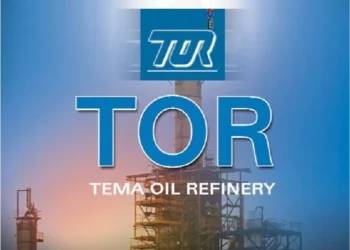So many years have gone by and corruption still remains a somewhat ‘glorified evil’ in many countries, especially those that engage in the extraction of precious minerals- gold, diamond, silver, etc.
Many countries, particularly those in sub-Saharan Africa have not accrued full benefits from the extractive industry as a result of corrupt practices that often characterize contractual agreements that happen in the industry.
However, there is good news, as all 55 member countries of the Extractive Industry Transparency Initiative (EITI), from 1 January 2021 will be required to publish new and amended contracts, licenses and agreements concluded with extractive companies.
The requirement to publish new contracts and contract amendments was introduced in the 2019 EITI Standard and represents a major leap in extractive sector transparency. Many contracts remain unpublished, increasing the opacity of the extractive sector and making it more vulnerable to corruption.
More importantly, large sums are at stake in extractive agreements, therefore ensuring contract transparency will create a huge disincentive for officials to conclude extractive contracts that may result in personal gain.
According to EITI Chair, Helen Clark, “Communities stand to benefit from contract transparency. They will be able to see how much to expect as revenues from companies. Subsidies and tax incentives awarded to companies will be in plain view. Stakeholders will be able to monitor obligations placed on companies to the environment, to make social payments, and to provide local employment and use local suppliers.”

Governments in Ghana, Afghanistan, Armenia and Mongolia among others have committed to the implementation of EITI standards including contract transparency. In Ghana, for example, at least the launch of the new petroleum register which provides information on the companies extracting the country’s oil and the terms of their agreements with the government allows the public to understand the terms involved in the deals undertaken.
Additionally, many EITI supporting companies have advocated for contract transparency, including major mining, oil and gas producers. The COVID-19 pandemic has dealt a heavy blow on the industry, impacting revenues in many resource-dependent countries such as Ghana.
“As the financial strain of the pandemic bites and companies and governments seek to renegotiate deals, the risk of a race to the bottom in contract terms increases,” said Elisa Peter, Executive Director of Publish What You Pay.
“Full and prompt contract disclosure is a powerful weapon against this, enabling the public to scrutinize the multi-billion dollar contracts which have a profound impact on their lives.”
To ensure that resource-dependent countries benefit extensively from this initiative, a lot must be done in terms of providing comprehensive and accessible record of all extractive contracts. Also, beyond disclosure of contracts, efforts need to be made to ensure that contract information can be used and that it informs debate on policy options.
READ ALSO: COVID-19 deals a huge blow on Africa’s Oil and Gas





















